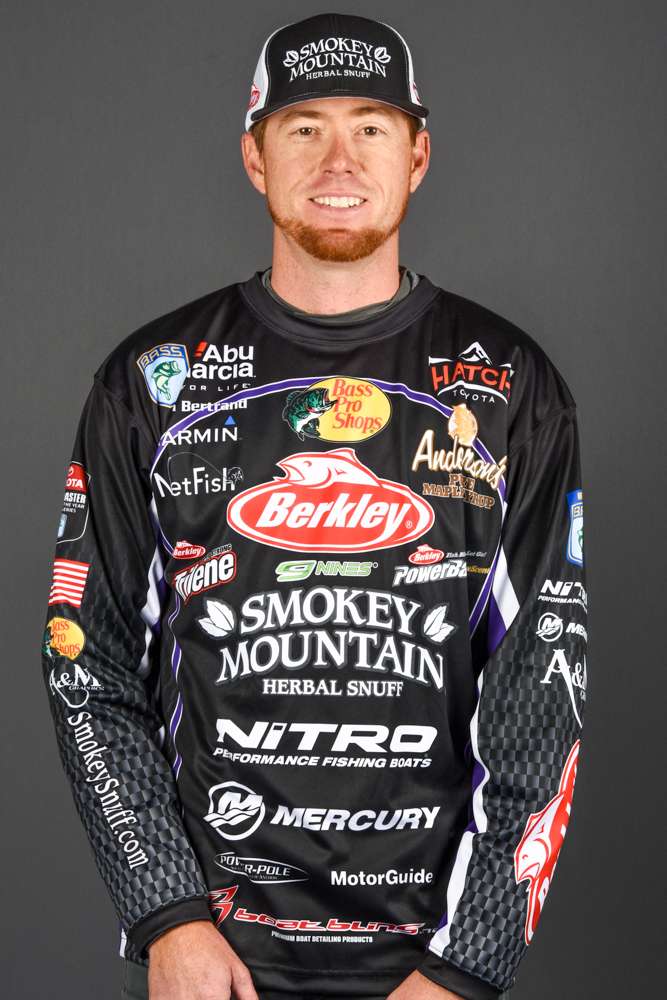
There is a disturbing misconception among some young bass anglers these days that in order to make it as a professional fisherman, you have to have been born rich.
I can shoot that misconception down simply telling you my own story.
I fell in love with fishing when my family lived in the Northeast. I grew up in New Hampshire, where I used to fish out of a kayak and a little aluminum boat.
My family moved to Arizona when I was 9 or 10 years old, and we started bass fishing here out of a 16-foot aluminum boat.
Notice how I haven’t mentioned the silver spoon that was in my mouth when I was born?
That’s because there wasn’t one.
We were a blue-collar family, and my dad couldn’t afford a big, fancy bass boat. I fished my first tournaments as a non-boater with other local people who had boats.
But it was something I wanted badly enough to make sacrifices.
All of the typical things teenagers were buying back in my day? I skipped those and saved my money for fishing tackle and tournament entry fees.
I made money guiding for bass half the year and as a fly fishing guide the other half of the year. I’m not a huge fan of fly fishing. But since it was so hot in Arizona, there were times when it was the only option.
I also made money detailing boats for $100 apiece. Two boats meant a good entry fee.
These days, I run a first-class rig with all the bells and whistles, but it hasn’t always been that way for me.
My first boat was a 15-or-16-year-old Nitro that I bought for $7,000 with my dad as a co-signer.
That’s the boat I fished tournaments out of for the first several years and the boat that ultimately helped finance my pro fishing career.
Believe me, you can earn enough money fishing local tournaments to make a run at the next level – if you’re good enough. If you’re really putting the work in and getting the results you want, at some point, fishing turns into a profitable thing.
When I was about 17 or 18 years old, I started to win some tournaments. I was actually making some money on the lakes of the Southwest.
When I was 21 years old, I decided I was ready to fish the Bassmaster Opens in hopes of qualifying for the Elite Series.
Boy, was I wrong.
I fished three Central Opens that year and didn’t cash a check.
My wallet and my ego took a hit, but I went back home and went right back to work. After a couple of years off — with some time to recover financially — I took what I’d learned and went back for another round.
This time, I finished second, 19th and 17th in three Central Opens — good enough to win the Central points title.
Things got easy for me then, right?
The sponsors just lined up for me, right?
Not even close.
Here I was, the Central Open points title winner, and I still had almost no sponsorship help that first year on the Elite Series.
I was shocked. But now, I understand why.
There are thousands of guys out there these days who look the part, talk the part and can catch fish. Sponsors don’t have to fall at your feet just because you did well in a few Opens.
You still have to prove yourself at the highest level.
During that first season on the Elite Series, I had a fourth-place finish, along with an 18th and an eighth. I earned a berth into the GEICO Bassmaster Classic presented by GoPro.
Then, finally, I started to build sponsors.
There are dozens of other guys on the Bassmaster Elite Series who could tell you stories with the same theme as mine.
There are guys out here who were born with more money than others— and I certainly don’t begrudge them for that.
But I know it’s not necessary to make it as a bass pro.
All you need is the willingness to sacrifice certain things and the ability to catch fish.
If you’re a young guy trying to make it in this sport, don’t let anyone tell you any different.

